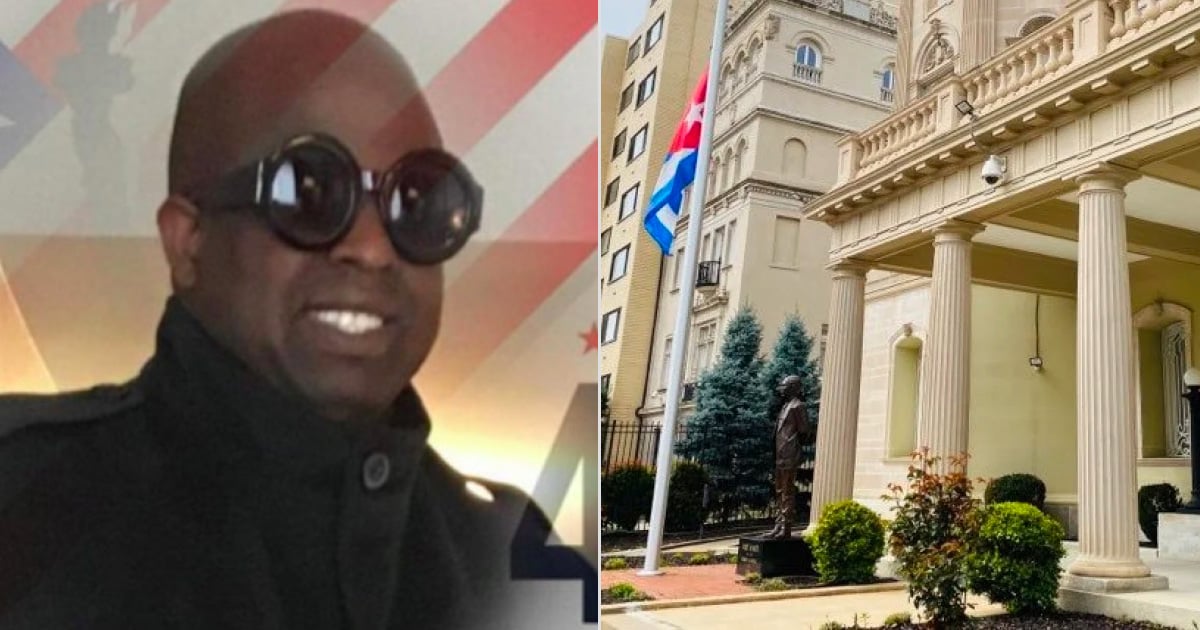
On October 15, Alexander Alazo Baró, who was acquitted for mental reasons after carrying out a shooting attack against the Cuban embassy in Washington in 2020, will be released on parole.
According to The Washington Post, a federal court in the United States ordered his release, subject to a rigorous psychiatric treatment plan, after having been in the custody of U.S. authorities for more than four years.
The decision was made last Tuesday, following a hearing in which Judge Amy Berman Jackson determined that the Cuban Alexander Alazo, 46 years old, will be released under strict supervision conditions.
The requirements for his release include submitting to a specific psychiatric treatment plan, under the supervision of a clinical psychiatrist close to his residence in Pennsylvania.
Additionally, you will not be able to leave your home at night or leave the city center where you live without obtaining prior authorization.
Another condition imposed is that Alazo must stay away from any Cuban government facility in the United States, as well as from its employees, as part of the security measures to prevent future incidents related to his attack on the Cuban embassy.
Until further court order, he will also remain under the supervision of probation officers, who must confirm that he continues to comply with his treatment.
To this end, they can review the record of their medications, which will be managed by his wife, Marianys Alazo Delgado, who is a nurse, according to the issued order.
The accused's wife, a probation officer in Pennsylvania, and the social worker responsible for supervising Alazo were questioned by the judge before the verdict was reached.
According to The Washington Post, Judge Berman Jackson told Alazo's wife that: "The long-term goal is for Mr. Alazo to be healthy, to be with you and your children in the community. I have the primary responsibility to protect the community through all of this."
Dr. Paul Montalbano, a psychiatrist at the Correctional Treatment Center in the District of Columbia, determined that “at the time of the commission of the acts constituting the crime, the defendant, as a result of a mental illness or deficiency, was in a state of severe mental health and was unable to appreciate the nature and the illegal magnitude of his actions.”
These conclusions served as the basis for the court's ruling. Additionally, during the preparation of the legal file, evidence emerged confirming that Alazo suffered from long-standing mental disorders.
Additionally, it was also revealed that Alazo lived obsessed with delusions of persecution, convinced that an armed group from Cuba would come to kill him in front of his family, which led his marriage to change homes several times and to stay overnight in hotels and vehicles, as he firmly believed that the island's government was following him.
Diagnosed with delusional disorder, Alazo was admitted to a psychiatric hospital in March 2020, one month before the shooting, where he was prescribed medication. After being discharged, he acquired the AK-47 rifle, which he kept with him since then as a means of protection, and with which he carried out the attack on the embassy.
On April 30, 2020, the attacker fired 32 shots with his rifle at the Cuban diplomatic mission. Since then, he has remained in the custody of U.S. authorities, who charged him with four counts of violent actions with a lethal weapon against officials and properties of a foreign government.
When the attack occurred, there were seven people inside the Cuban embassy; although none were injured, the building suffered significant damages both to its facade and its interior.
The Cuban government has blamed the United States from the start for prolonging the Alazo case and not classifying it as a terrorist action.
Also, on the past first of May, he condemned Berman Jackson's decision to acquit the defendant for mental reasons, after a lengthy judicial process and numerous medical evaluations.
According to federal law, individuals declared not guilty only by reason of mental disorders must remain detained until a court determines that their release does not pose a substantial risk of bodily injury to another person.
What do you think?
COMMENTFiled under: